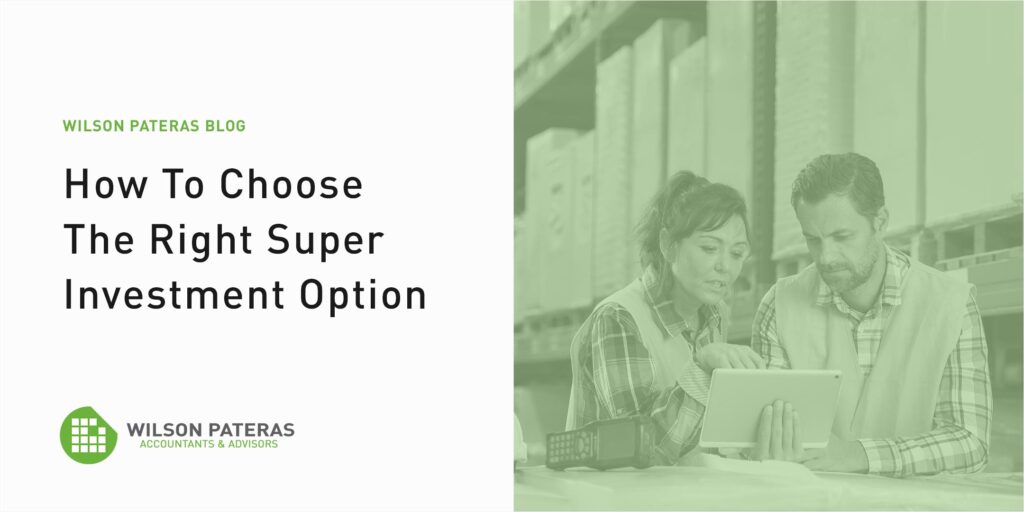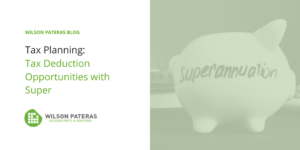
If there’s one thing certain in life, it’s change. And generally, your perspective towards saving and investing will change as you get older.
The way your super is invested at the beginning of your career may not be the most suitable approach when you’re closer to retirement. Fortunately, you can change your investment options at any time. This could make a real difference in how much money you have when you retire.
Most of the superfunds usually offer different investment options you can choose from.
If you haven’t selected an investment option, your money is most likely invested in your fund’s default option, which typically has a balanced approach to risk and return.
To learn more about different super investment options, we’ve answered three common questions:
- How your money is invested?
- What are the different options available?
- How your stage of life may influence your preferences?
How do super funds work?
Typically, no less than 9.5% of your before-tax salary (if you’re eligible) is paid into (contributed) superannuation fund of your choice. This money is then taxed at a maximum of 15%. As time goes by, your super fund will invest this money, so you can hopefully retire comfortably.
Your super fund will let you choose from a range of investment options and generally, the main difference will be the level of risk you’re willing to take to potentially generate higher returns.
If you are unsure how your super fund has invested your money, you can contact them. You might be able to see your current investment option by logging into your super fund’s online portal – this may also give you a current balance and other information such as your projected super savings over a lifetime.
What are the super investment options I can choose from?
Most super funds offer a variety of investment options. These can include ‘growth’, ‘balanced’, ‘conservative’ and ‘cash’ but the terms can differ across super funds. Here’s a small sample of the typical type of investment options available:
- Growth options aim for higher returns over the long term, however, the risk level is higher when markets aren’t performing. They generally invest around 85% in shares or property.
- Balanced options generally invest around 70% in shares or property and the rest in fixed interest and cash. They don’t usually perform as well as growth options over the long term, but there is less risk when there are market downturns.
- Conservative options invest typically around 30% in shares and property and the rest in fixed interest and cash. The risk is lower and the losses are small when markets aren’t performing, but the returns tend to be smaller.
- Cash options invest 100% of your money in deposits with Australian deposit-taking institutions such as banks, building societies and credit unions. Cash options aim to guarantee your capital and accumulated earnings cannot be reduced by losses on investments.
Before making any decisions, always read your super fund’s product disclosure statement as different funds may have different allocations.
It could be a good idea to
consider factors such as your current stage in life, and future plans and goals
before choosing the super investment option that’s right for you.
What’s the right investment option for me?
When you are choosing your super investment options you should consider:
- How many years you have until retirement
- How comfortable you are with taking risk
- Your goals for retirement
If you’re young, you may have more time to ride out market highs and lows, and therefore be more comfortable with more risk in the hope of enjoying higher returns.
A conservative approach may be a better option if you are approaching retirement. as a share market crash could be harder to recover from than if you’re 20 years away from being able to access your super.
Choosing the right super investment option is important regardless of your age. The strategy will define how much money you will have to retire on and how comfortably you can live in your retirement years.
Contact Wilson Pateras for SMSF & Superannuation advice
This article contains general advice only. It does not take into account your or your family’s individual objectives, financial situation or needs. You should seek advice from a financial planner or other professional adviser before making any financial decision based on this information.





